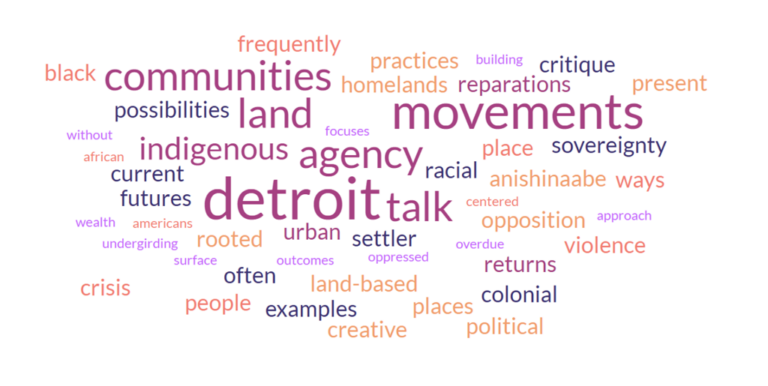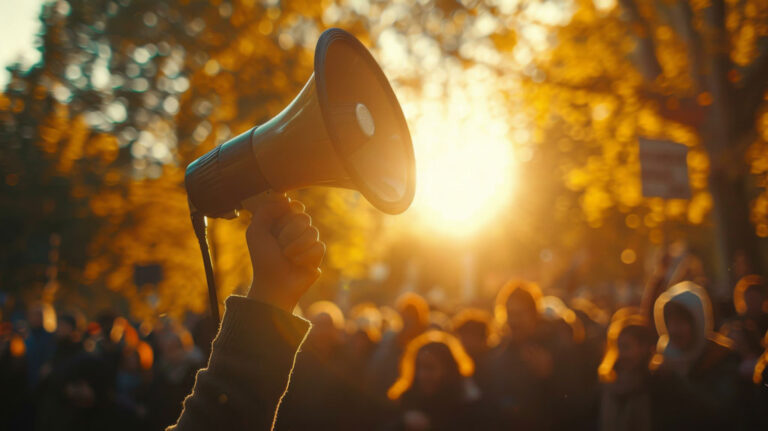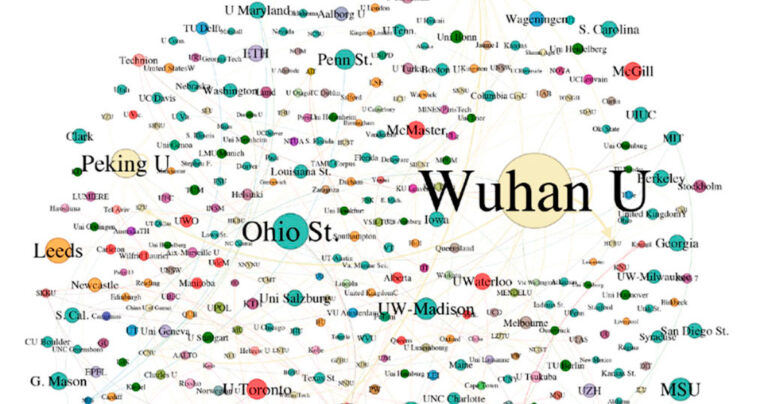Confessions of a Conference Thief
The views and opinions expressed in op-eds published in the AAG Newsletter are those of the author(s) and do not imply endorsement by the American Association of Geographers. The AAG accepts submissions of op-eds for AAG news content consideration. Authors must be current AAG members. The decision to publish op-eds is at the discretion of the AAG with consideration of how the topic contributes to relevant and important discussions among and interests of the AAG membership community. Questions or submissions can be sent to efekete [at] aag [dot] org.

I was a thief. A mild thief, but a thief nonetheless. In 1996, the Binghamton Geomorphology Symposium held a series of talks on the topic of “The Scientific Nature of Geomorphology.” As a young 23-year old graduate student, I registered and then covertly audio-recorded the talks from a cassette recorder hidden in my jacket pocket. Even though it wasn’t stated explicitly, I guessed that doing this would probably constitute theft of intellectual property. But I did it anyway.
I did it because I had no intention of using the recordings other than for my own private education, which I felt I had paid for when I paid my registration fee. I wasn’t going to scoop the speakers on some published content, and I wasn’t going to give out the recordings to friends. I knew that the content of the talks would be new to me, complex, and that I wouldn’t understand everything the first time I listened, and that it was material I wanted to master as I worked towards a “Doctor of Philosophy.”
The recordings were horrible quality, but they were adequate. I could hear to the degree necessary to be able to listen over and over and gradually understand what was being communicated. I had purchased the symposium special issue, so I had many of the figures to go with the talks. I also had the luxury of being a very fast note-taker and figure-drawer, a luxury many lack. Like many presentations, the talks were far more informal as compared with the written articles. It was the audio tapes I understood far more readily. Today, I am often asked to teach classes and address groups on philosophical issues subjects raised in that symposium. My theft was worth it.
Today, every major association that my students and I frequent has banned recordings of any kind at their meetings – the AAG, AGU, EGU, and others. These bans exist for many reasons – to protect presenters’ intellectual property, to foster a “safe” environment where researchers can present new ideas, to encourage people to come to (and pay registration to) meetings, and others. These are noble and justifiable reasons, and I am not surprised by them.
But these bans are problematic. First, they seem to be becoming increasingly futile. Technology that nearly every attendee carries in their pocket can record hours of audio and video. Many people, in spite of the bans, are involved in some aspect of recording – taking pictures of slides or posters, videorecording talks, or whatever. Not one or two people here and there, but a huge number of people. For every person asked to stop a recording, ten seem to spring up. Sometimes the price of being caught is to be publicly told to stop. Rarely, it is to be cast out of the conference.
Second, a generation is entering the profession that have been required to take fewer notes, and instead have been given pre-made educational materials to a larger degree. They are asking to be able to record lectures on campus, thus they wonder: why shouldn’t they be able to do so at a conference? Some are able to process and record presentations much better than others (especially those for whom English is not a first language), why should they not get further opportunities to understand what is being presented?
Third, there appear to be partially conflicting ideas of the purposes of a conference. Rather than simply being a safe forum for trying out new ideas, associations are making increasingly vocal calls for these conferences to be visible public forums. Major lectures are publicized in the press. Science journalists report findings from the conferences. The development of e-posters, live tweeting, and other alternative modes of delivery seem to be reaching towards maximum visibility of the presentations. Anyone can pay to enter and hear any presentation they wish. If ten people tweet reactions to parts of a particular talk, how much intellectual property has been “given away”? Moreover, these presentations (or, at least their abstracts) are citable. On a related note, I can’t guess how many times I have heard in conversation from junior and senior researchers alike: “I really wish we had a recording of Professor M giving that pivotal talk from way back when.” If that is really what we want, why do we ban doing so?
Fourth, a revolution of open access, data, and publication is underway. The incoming generation of scholars perhaps is more knowledgeable and comfortable with the idea that results from publicly-funded projects are not completely “their own,” and that sharing of data and ideas is a basic expectation. Interim reports are still shared, usually with the proviso that they should be treated as draft reports. Are not conference presentations a type of draft report?
The argument of intellectual property protection as the basis of these recording bans is important, and I do not advocate wholesale recording and distribution of every conference talk. But I’d like to offer an alternative to these total bans. I think that it should be up to each individual presenter to decide whether they would like to allow recording of their talks, posters, and other modes of communication. It seems reasonable to me that at the beginning of a talk a speaker might say “these results are too preliminary for me to feel comfortable with their being recorded,” or “the research is to the point where you may record for your own personal use.” In the cases where presenters are comfortable with the audience-made recordings, it might be with the proviso that this privilege comes from a mutual understanding that the recordings or materials derived from them would not be shared or circulated.
I welcome discussion on this topic. Whether the bans stay or are modified, one thing is for sure – there will be those audience members who decide that the benefits of recording will outweigh the risks of being caught doing so.
Mark A. Fonstad
Associate Professor
University of Oregon
fonstad [dot] uoregon [dot] edu
DOI: 10.14433/2017.0027
For information about current AAG Annual Meeting policies, including the use of video or recording technology, please visit the Annual Meeting Guidelines web page.


